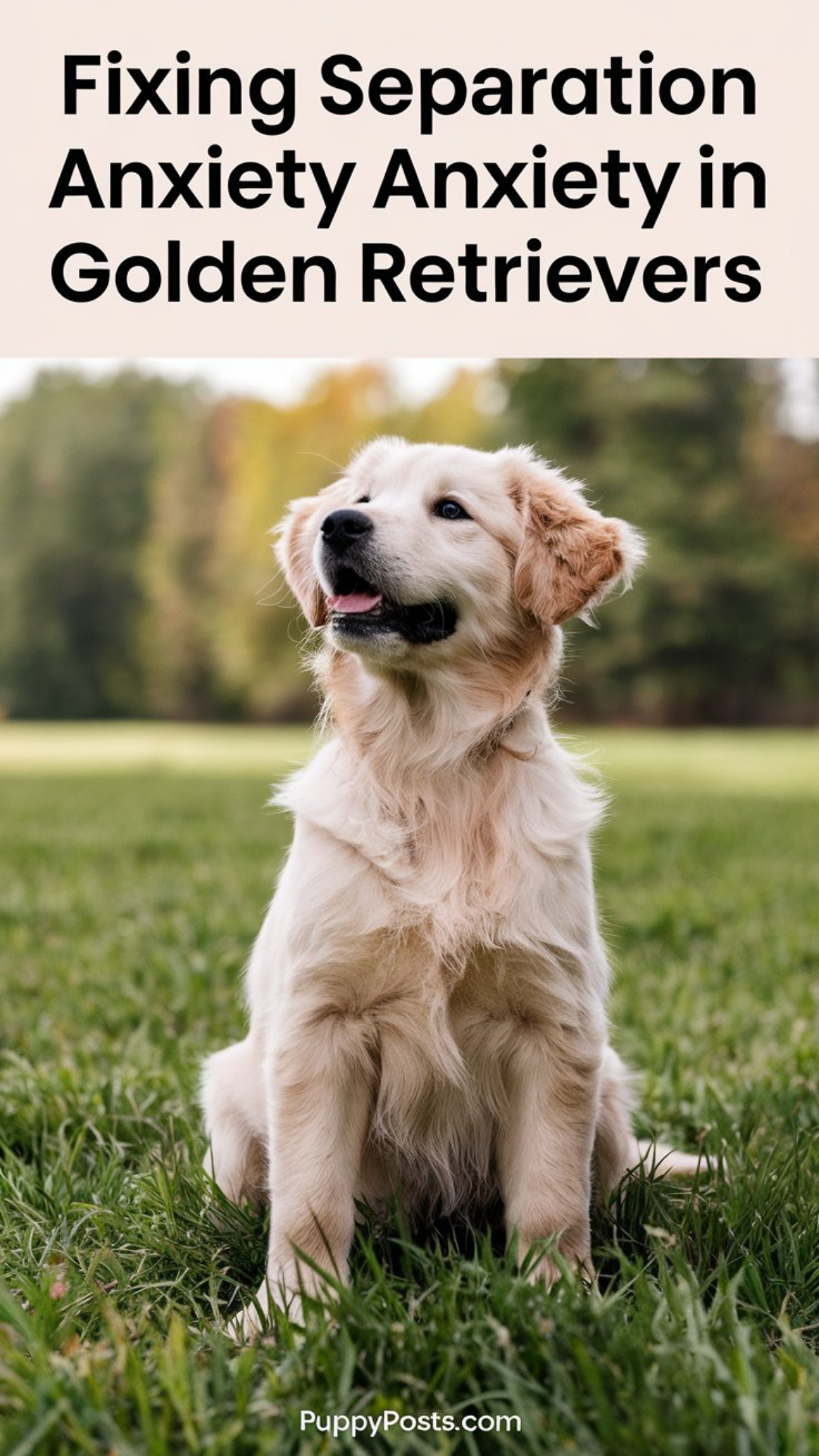Fixing separation anxiety in Golden Retrievers
Golden Retrievers—great dogs, loyal as hell, and full of love. But when separation anxiety kicks in, even the best dogs can turn into stressed-out wrecks. I’ve been a vet for over a decade, running a sanctuary for strays, and I know how tough this problem can be—for the dog and the owner.
If you want to fix separation anxiety in your Golden Retriever, listen closely. It’s going to take calm, consistent effort. No shortcuts. No drama. Just steady work and smart training.

Why Golden Retrievers Get Separation Anxiety
These dogs are bred to be close to their humans. They thrive on companionship, which means when you leave, they feel vulnerable and scared. That fear often shows up as barking, pacing, chewing, or even accidents in the house. Your job is to teach them that alone time isn’t a threat—it’s just a normal part of life.
Step 1: Make a Safe, Comfortable Space
Give your dog a designated area—whether it’s a crate, a gated room, or a cozy corner—with their bed, toys, and water. This should be a place your Golden Retriever feels secure and calm when you’re not around.
Step 2: Ease Into Alone Time
Start with brief departures. Walk out for just a few minutes and come back before your dog gets upset. Gradually increase the time you’re away. Keep arrivals and departures low-key. Don’t turn your leaving into a big event—that just amps up the anxiety.
Step 3: Exercise Their Body and Mind
Golden Retrievers have plenty of energy and a sharp mind. Give your dog a solid workout before you leave—whether that’s a brisk walk, some fetch, or a training session. A tired dog is a calm dog.
Step 4: Reward Calm Behavior
When you come back and your dog is relaxed, reward that calm with praise, treats, or affection. Positive reinforcement teaches your Golden Retriever that being calm during alone time gets good things.
Step 5: Never Punish Anxiety Symptoms
If your dog barks or chews because they’re anxious, don’t punish them. That just increases their stress and damages your bond. Stay patient, steady, and reinforce the calm behavior instead.
Step 6: Get Professional Help If Needed
If your Golden Retriever’s anxiety is severe or not improving, consult a professional trainer or veterinary behaviorist. Don’t wait until things spiral out of control—early intervention makes a big difference.
Bottom Line
Fixing separation anxiety in Golden Retrievers isn’t easy, but it’s doable. Build a safe space, ease into alone time, exercise your dog, reward calm behavior, and stay consistent. With time and patience, your Golden Retriever will learn to handle being alone without stress.







